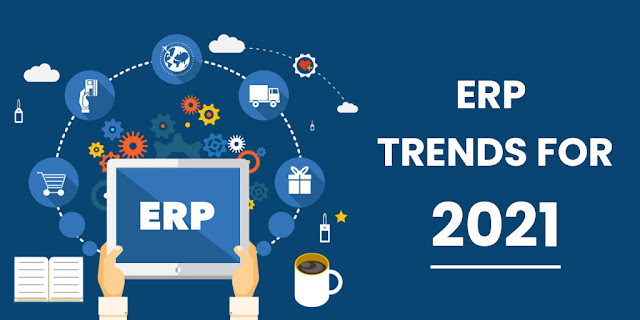3 Top ERP Trends SMBs Should Know to Thrive in 2021 and Beyond
Although innovation and
profit margins are paramount, small and medium-sized enterprises are still
struggling due to the devastating COVID-19 pandemic. It is no surprise that
2020 has been a miserable year for SMBs, but in turn, they are now more focused
on new initiatives, technology, and digital transformation.
It’s time for SMBs to move
ahead to the ultimate success with new possibilities of growth and a wide range
of business functions. Enterprise Resource Planning (ERP) is an advanced
solution to support front-office and back-end processes like accounting,
manufacturing, procurement, inventory, and so on. You can implement ERP software in Malaysia or elsewhere to eliminate manual tasks and
automate mundane processes with access to critical information to make
better-informed decisions.
The growing usage of ERP makes it an absolute necessity for SMBs to watch out for ERP trends in 2021 and beyond to thrive more effectively.
Cloud ERP Implementation
Digital transformation is a primary step to switch from legacy systems to modern cloud ERP solutions. It can help streamline business processes, records, data sources, and systems within a single database. It provides a single version of the truth, which allows users to work in an office, remotely, and even in any nook without disruption.
Rise in E-Commerce
While the COVID-19 has
turned the entire world upside down, the demand for e-commerce integration will
continue to increase, given the virus norms and online shopping reliance. Those
who have adopted cloud-based ERP didn’t experience difficulty in planning and
decision-making processes.
The right cloud ERP solution, such as Acumatica ERP and built-in mobile capabilities ensure seamless communication and collaboration at its optimal level. An integrated ERP and e-commerce solution allows SMBs to manage their business processes and provide a hassle-free shopping experience to customers.
Technologies Integrated with ERP
While ERP is a core element
in digital transformation, companies are willing to integrate their business
applications with other modern technologies, including the internet of things
(IoT) in order to simply main processes. You can even integrate ERP with
artificial intelligence and machine learning to enhance workflows, order
fulfilment, manage inventory levels and payments.
The transition to cloud ERP
will eventually SMBs to boost their growth as it makes it quite easier for all
levels of companies to gain speed and agility. It provides data security,
seamless third-party integration, AI/ML capabilities, and mobility they need to
sustain and flourish in a fast-changing marketplace.



Good to find this informative blog.Its extremely good and very helpful for me.
ReplyDeleteERP Software for Manufacturing